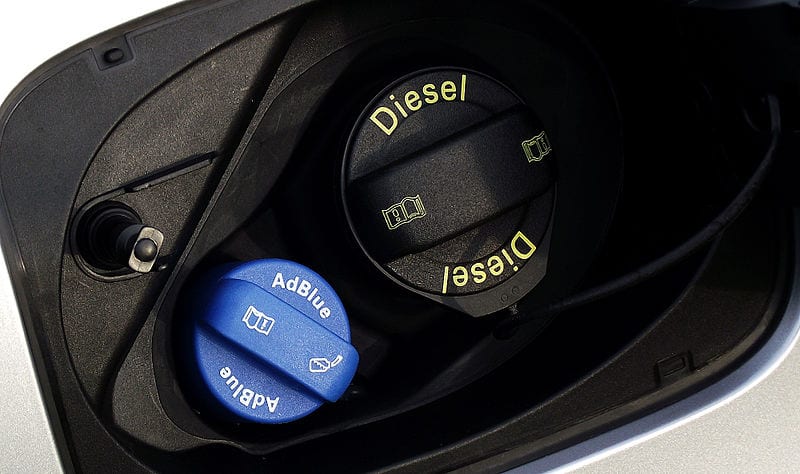While diesel fuel has its own set of advantages and disadvantages, one of the biggest issues of a diesel-fueled vehicle is the maintenance cost. Also, professional mechanics with diesel vehicle experience and expertise are harder to find.
Diesel mechanics are vehicle doctors and must be allowed to repair and maintain your vehicle for optimal results. However, there are some repair and maintenance issues that owners can easily resolve by themselves.
These repairs act as solutions to some very basic problems like leakages, difficulty in starting the vehicle, low power, hearing weird noises, etc. What problems can arise? What part could be at fault? The 10 common problems of a diesel vehicle that follow will answer these questions for you.
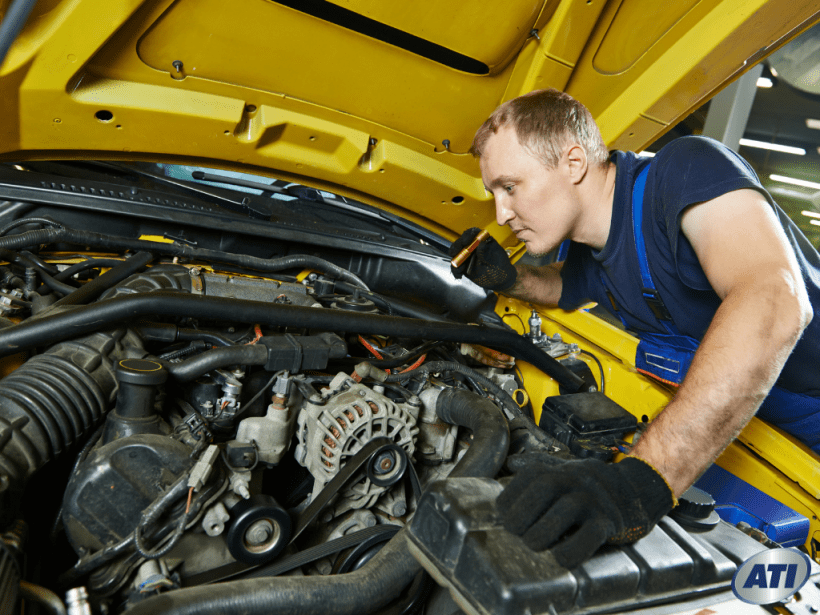
1. Engine Lacks Power
Low power and low acceleration are very common problems of diesel engines. These could be caused if the throttle linkage is loose, the fuel filters are dirty, you have applied excessive lubrication, or the fuel injectors of your ride are malfunctioning.
2. Difficulty in Starting the Vehicle
If the compression levels of your vehicle are low, or the fuel delivery system is malfunctioning, you may find that your vehicle will not start in one go. It’s understandable if the engine cranks a bit, but you’ll have to consult a professional mechanic if it doesn’t start at all.
3. Contaminated Fuel
Due to diesel’s viscosity being much higher than gasoline, it is prone to more contamination. Water, glycol, and soot are the most common and dangerous contaminating agents. Also, contamination may also be a result of fuel dilution.
4. Lubricant Contamination
Idle diesel trucks are in danger of air and oil getting mixed up. This process causes bubbling that results in contamination of lubricants and additives and is known as oil oxidation. Oil oxidation can be avoided by regularly changing engine oil, especially immediately after the vehicle has not been used for a long time.
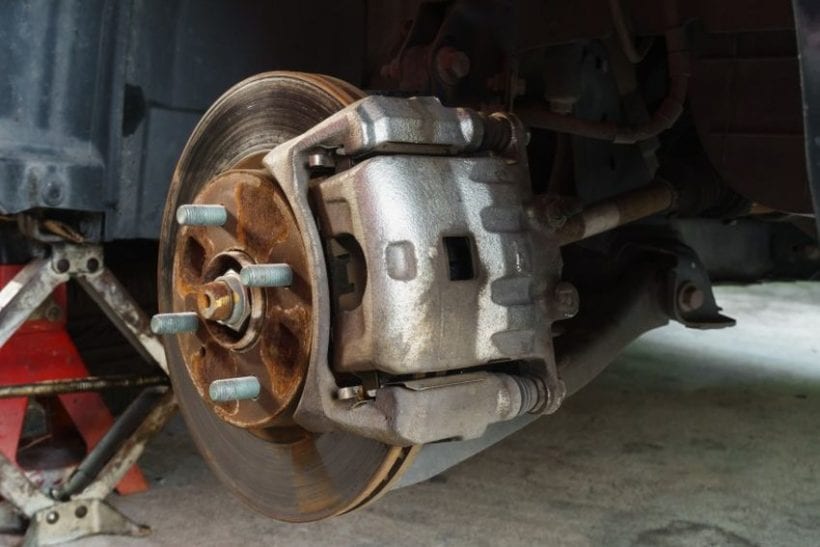
5. Exhausts Turn Black
The proportion of air to fuel in the engine has to be precise to ensure a long life of the engine. In case this is disproportionate, your vehicle will stink and it will be difficult to breathe when you’re inside. Also, black exhausts may result in hefty fines from environment-protection authorities.
6. Starter System Damage
In case your lead-based storage batteries start to malfunction, the ratio of compression will be off-balance and affect the life of your starter system. To avoid this, you need to ascertain that your vehicle gets enough cooling off period and is well maintained.
7. Requires Hard Starts
When the weight viscosity of the engine’s lubrication system is messed up, it results in a lot of damage to the engine including startup issues and knocking. You need to ensure the proper balance is struck, especially if you’re one of those DIY enthusiasts who self-maintain your vehicle. Remember that single velocity oils are ideal for the summer while the engine needs a multi-viscosity oil in cold weather.
8. Making Too Much Noise/Weird Noises
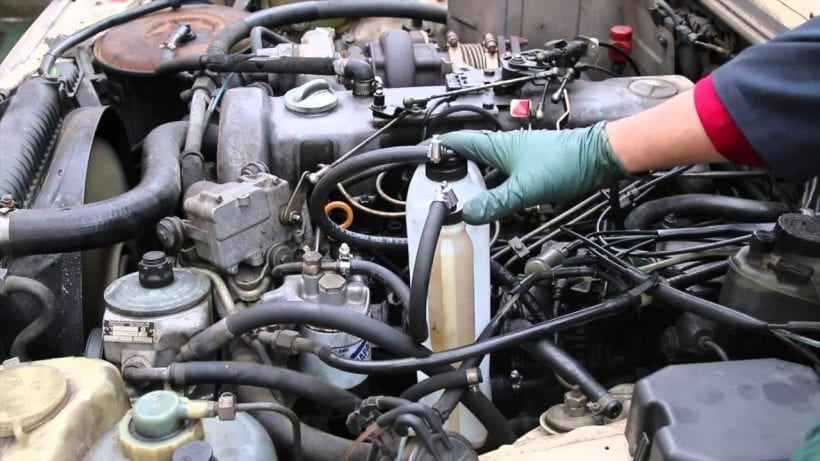
Weird noises coming out of your engine are never a good sign. Even if your diesel engine makes more noise than usual, it’s a sign that something may be wrong. This is usually due to something being wrong with your fuel injectors. This negatively impacts the compression balance of the engine, resulting in poor performance.
9. Occasional Knocking due to High Compression Ratio
Diesel engines have an average compression ratio of 20:1, while for gas-powered engines the same is 8:1. While this is a huge added benefit when it comes to diesel engine efficiency as well as smoothness, it has a flip side too. That issue being the compression rate can cause an irregular burn pattern that results in engine knocking.
10. Increased Humidity
Overexposure to rainy or humid conditions may lead to moisture accumulation, which in turn will result in an increase in oxidation rate, damage the quality and functionality of the additives, as well as cause engine knocking. The humidity leads to water generation within the engine which can pollute the lubricants and damage your engine badly.
Diesel Engine Maintenance Checklist
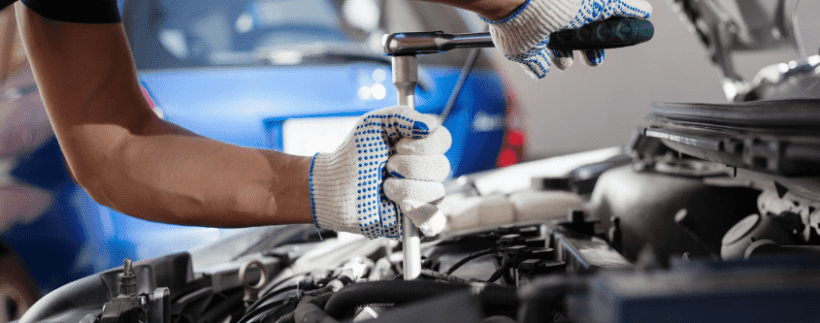
Apart from the above things, you should always keep in mind the following checklist:
- #1: Make sure to clean your engine frequently – that includes dirt and dust or grime. These small things, if left uncleaned, can damage your engine (its component parts).
- #2: Make sure to regularly change your fuel filters – you should replace both of your fuel filters (primary filter located between the fuel tank and the engine AND secondary filter up near the engine, which cleans the fuel before it gets to the fuel injectors) every 15,000 to 25,000 kilometers.
- #3: Regularly check your coolant – coolant is a liquid you mix with water. It will protect the cooling system (radiator) from overheating or freezing). If you don’t replace it regularly, the mixture will become acidic and will start to erode the cooling system and other components.
- #4: Make sure to change your oil as needed – in general, oil for diesel engines should be replaced every 8,000 kilometers. If you know that you push your vehicle hard and drive it all the time, we recommend to change your oil even more frequently.
- #5: Don’t forget to replace your air filters – important thing to realize that if you drive your car in an environment that is usually dusty or polluted, you should change your air filter more often. The air filter is located inside the cold air collector box under the hood.
Final Word
These common problems and their causes will help you better identify the issue your vehicle might have. These are symptoms that you can easily identify and let your mechanic know so that he doesn’t waste time in searching for the issue.
There are also times when it is desirable to exchange some older parts for new ones. It’s usually best to consult this with your car mechanic. If you own a truck, you can visit diesel warehouse where you can get expert advice and find various diesel performance parts for amazing prices (you can check out Canadian Diesel Online). Always remember that good maintenance will help you prevent 90% of issues and save you 90%. It’s in your interest to educate yourself on this topic and treat it with great importance.

